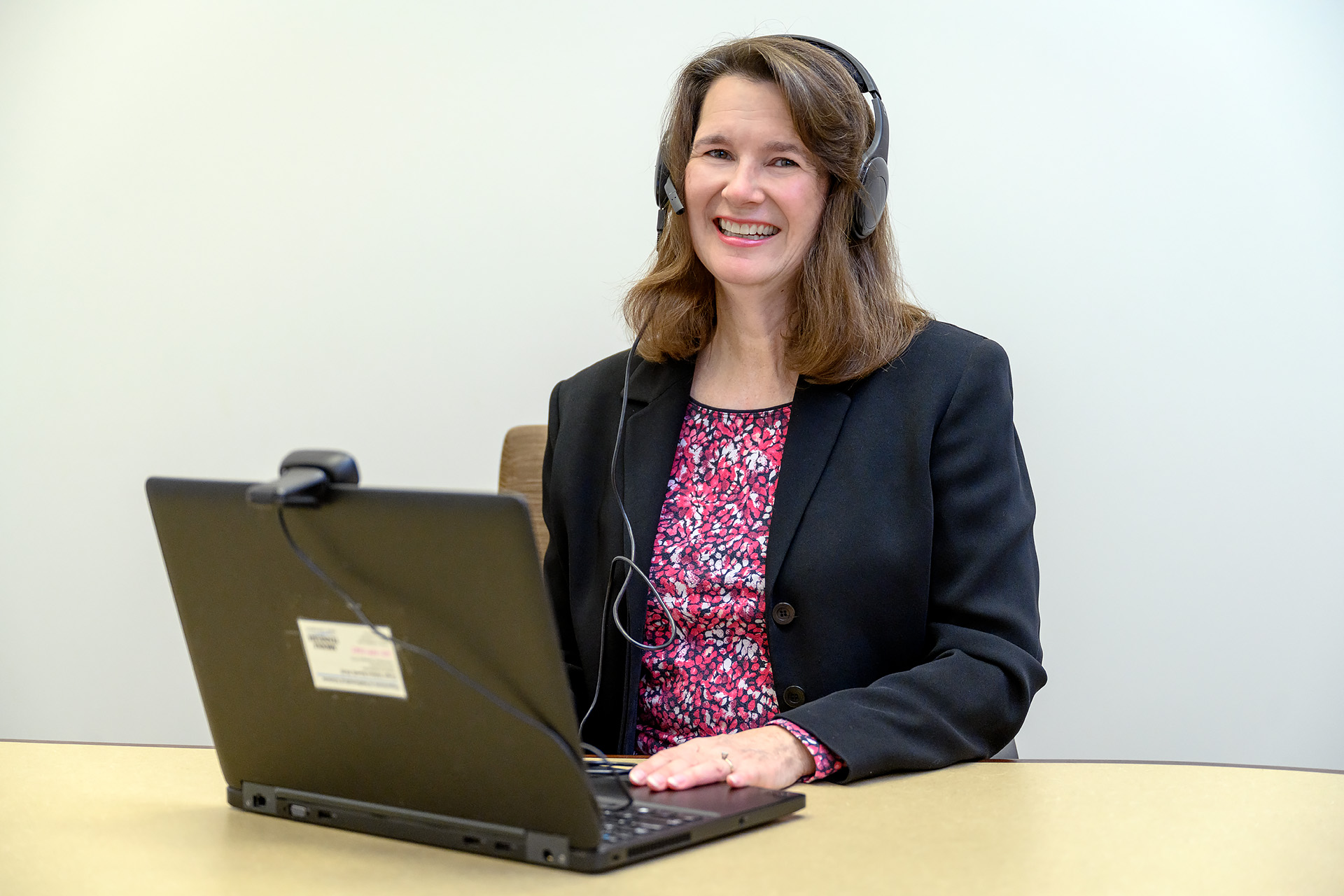Ginger Holmes Rowell’s working world as a professor in MTSU’s Department of Mathematical Sciences involves statistics and statistics education.
For the fall 2020 semester, Rowell is teaching three courses: introductory applied statistics with 70 students and two graduate stats courses to roughly 110 students combined.
The introductory applied statistics classes are being taught remotely because of COVID-19, with instructor Sumeda Abeykoon and graduate assistant Jennifer Seat joining Rowell to remotely teach 200 students.
“We are using new National Science Foundation active-learning materials, group work and even project work in the remote setting to help engage students and help them think deeply about meaningful statistical concepts,” Rowell said.
Rowell said it “seemed a little daunting, with the restrictions of the pandemic.” But with success in spring and summer using Zoom for remote classes, she volunteered to try teaching a large section this fall. “We have used Zoom breakout rooms for student-to-student conversations and reporting back,” she added.

They started using online statistical games supported by the NSF to help students understand some of the challenges with collecting data, how to handle unusual observations and “messy data” and how to use data to make decisions, Rowell said.
Students worked together to write statistical reports and included next steps for the research, which they will explore using the statistical game later in the semester.
Praising MTSU leadership during pandemic, Rowell commends “the strong leadership of Dr. (Sidney A.) McPhee, Provost (Mark) Byrnes and others committed to keeping faculty, staff and students safe while promoting the highest standards for student learning through this entire pandemic period.”
She cited one illustration of this guarantee to high standards as the university’s immediate purchase of an enhanced Zoom license for the entire campus to enable faculty and students to have face-to-face teaching/learning interactions virtually.
Rowell also pointed to the immediate and continued support from MTSU’s Information Technology Division to help faculty improve their teaching by providing information about research-based practices as well as lessons on how to best use technology to help students be successful in remote classes.
“And all of the work the university has done to ensure the safety of all is paying off as is seen in the ability to continue to provide some options for face-to-face classes this fall semester,” Rowell said.
“There are challenges with technology, but there are also workarounds,” she added. “I have observed at MTSU both students and the faculty want to find those ways to make the remote learning environment the best it can be. It might take more patience or more creativity or more time to get it the way you want it to be, but the rewards of seeing the students have success learning make it worth it.”

Adapting, communicating with students
After the spring semester, Math Department Chair Chris Stephens voiced a concern that because of remote teaching and the ongoing pandemic that it would be easy to lose contact with students at a time when they need it the most.
Stephens asked Rowell to lead a departmental task force on Supportive Teacher-Student Communications. She and colleagues Jim Hart, Alyson Lischka and Rebecca Calahan supplied fellow faculty with a guide for communicating with students regarding academic issues as well as health and safety concerns.
Calahan provided templates for faculty to email students at various key times during the fall semester — before the semester began, after the first test, midterm and near the end of the term.
The prototypes included wordings for students who were performing well in the course to provide encouragement, as well as phrasing for those who might be struggling with attendance, grades or other things.
“Especially in a remote class with a large number of students, I have seen the value of having efficient means of communicating with students,” Rowell said.
Rowell served as associate and interim director of the Tennessee STEM Education Center from 2017 to 2020 and as interim director of the Middle Tennessee STEM Innovation Hub, a K-12 professional development concept for STEM — science, technology, engineering and math — education in 2017-18.
She earned her bachelor’s degree from Birmingham Southern College and her master’s and doctorate from the University of Alabama-Huntsville. She spent 20 months as a National Science Foundation program director.
Rowell’s research has focused on statistics education and graduation/retention in STEM disciplines. Working with MTSU colleagues, she has been a part of 10 publications in these areas.
She was project director on one NSF-funded statistics education grant of $175,000 plus a $35,000 supplement, co-project director for a $2 million NSF “First STEP” grant and evaluator on other NSF grants.
Her past recognition include the national Waller Statistics Education Award and MTSU’s Outstanding Use of Instructional Technology Award.
— Randy Weiler (Randy.Weiler@mtsu.edu)

COMMENTS ARE OFF THIS POST